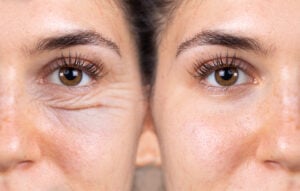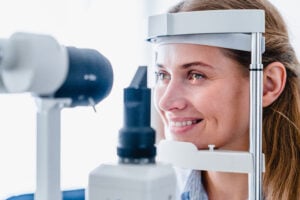HPV Vaccines and their role in preventing gynaecologic cancers are in focus at the Obstetrics and Gynaecology Conference, which is currently taking place at Arab Health 2024 in Dubai, United Arab Emirates.
Dr. Stephanie Ricci, MD, from Cleveland Clinic Abu Dhabi’s Gynaecology and Oncology departments, shared insights during the conference’s opening day, emphasizing the importance of adopting successful HPV vaccination programs in the MENA region. She stated:
Thankfully, we have a vaccination for HPV, and there are successful national HPV programmes around the world that are almost a decade into their existence. The data from this is very interesting and compelling when it comes to gynaecologic cancer prevention
Dr. Stephanie Ricci, MD - Staff Physician, Gynaecology and Oncology, Cleveland Clinic Abu Dhabi
Cervical cancer prevalence
Cervical cancer has seen a global increase, ranking as the fourth most common cancer in women, according to a 2020 study by Global Cancer Statistics.
Dr. Ricci highlighted the alarming statistics, emphasizing that 84% of cervical cancer cases are from regions without screening programs. Women in resource-limited countries are particularly vulnerable, with cervical cancer being the second most common cancer and the third most common cause of cancer mortality in these regions.
HPV vaccine
The Human Papillomavirus (HPV) is a sexually transmitted disease that is responsible for the majority of cervical cancers.
HPV is detected in 99.7% of cervical cancers, and the development of cervical cancer can take over ten years after contracting HPV.
The HPV vaccine was introduced in 2007. There a three types of HPV vaccine that are currently available – the HPV Quadrivalent vaccine (Gardasil) which targets HPV types 6, 11, 16 and 18; HPV 9-valent (Gardasil 9) which targets HPV 31, 33, 45, 52 and 58 in addition to HPV 6, 11, 16 and 18 and HPV bivalent (Cervarix) which has been created to prevent HPV 16 and 18.
Highlighting the significant impact of the HPV Quadrivalent vaccine, two large randomised, double-blind trials found that the vaccine prevented CIN2 by 97-100% among HPV naïve populations. Experts suggest that achieving international vaccine rates of 70% could potentially result in a significant reduction of over 300,000 new cases of cervical cancer annually and over 178,000 cervical cancer-related deaths.
Australia to eliminate cervical cancer by 2035
Amid rising HPV vaccination rates, Australia is on track to eliminate cervical cancer by 2035. Five to eight years after the HPV vaccination was introduced to the country, the Australian Institute of Health and Welfare reported a 92% reduction in the HPV infection rate and a 47% decline in CIN2 and 3. There was also a significant reduction in excisional procedures.
Australia has probably the most robust vaccination of any country in the world, and they’ve also had the most success. From 2007, Australia implemented school-based routine vaccination for 12-13-year-old girls, they then also did a catchup programme for 14-26-year-old females. In 2013, Australia started vaccinating 12-13-year-old boys routinely in schools and rolled out a catchup programme for boys aged 14-15 years old. Australia, unlike many other countries that have employed HPV vaccination programmes, is actually going to eliminate cervical cancer.
Dr. Stephanie Ricci, MD - Staff Physician, Gynaecology and Oncology, Cleveland Clinic Abu Dhabi
Amid rising HPV vaccination rates, Australia is on track to eliminate cervical cancer by 2035. Five to eight years after the HPV vaccination was introduced to the country, the Australian Institute of Health and Welfare reported a 92% reduction in the HPV infection rate and a 47% decline in CIN2 and 3. There was also a significant reduction in excisional procedures.
In 2016, the World Health Organisation (WHO) Strategic Advisory Group of Experts on Immunisation recommended that all girls should be vaccinated to prevent cervical cancer later in life. The WHO believes that to end cervical cancer, nine out of ten girls around the world should be vaccinated.
The theme for the 16th Obstetrics and Gynaecology Conference which takes place until 30 January is ‘From evidence to practice: Transforming obstetrics and gynaecology care through clinical case integration’. The two-day event equips health professionals from around the Middle East with the latest insights on various topics including Hormone Replacement Therapy, adolescent gynaecological issues and pregnancy loss and showcases the latest innovations that are transforming women’s health.
The 49th edition of Arab Health takes place until 1 February 2024 at Dubai World Trade Centre.
For more information or to register for the event, please visit www.arabhealthonline.com.
Media contact:
JAMES LAKIE
General Manager
E-mail: james.lakie@shamalcomms.com
About MTM Global
MTM Global is a UK-based international healthcare consultancy and online travel agency specializing in premier health tourism.
For all corporate and media inquiries, click here.















